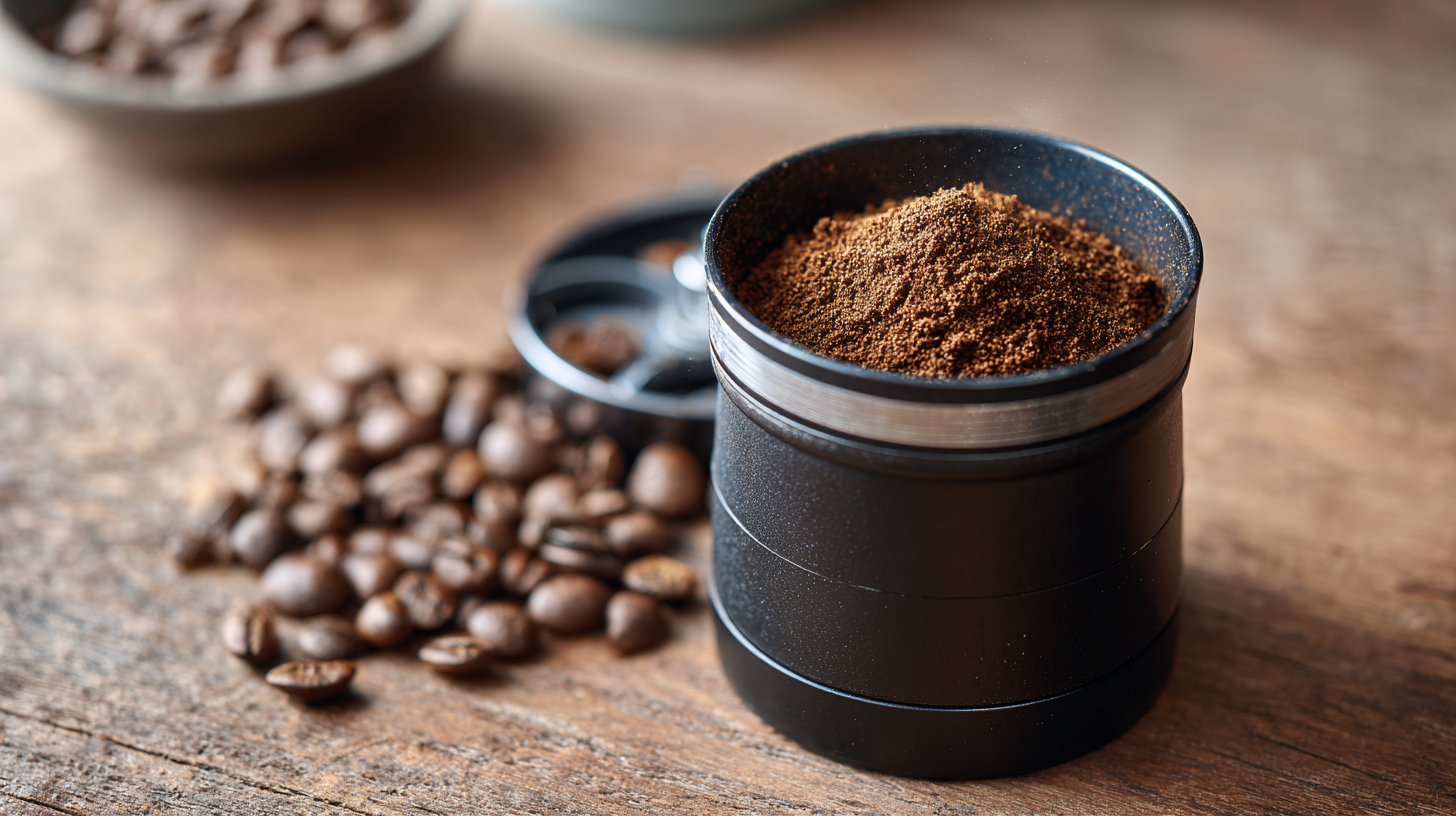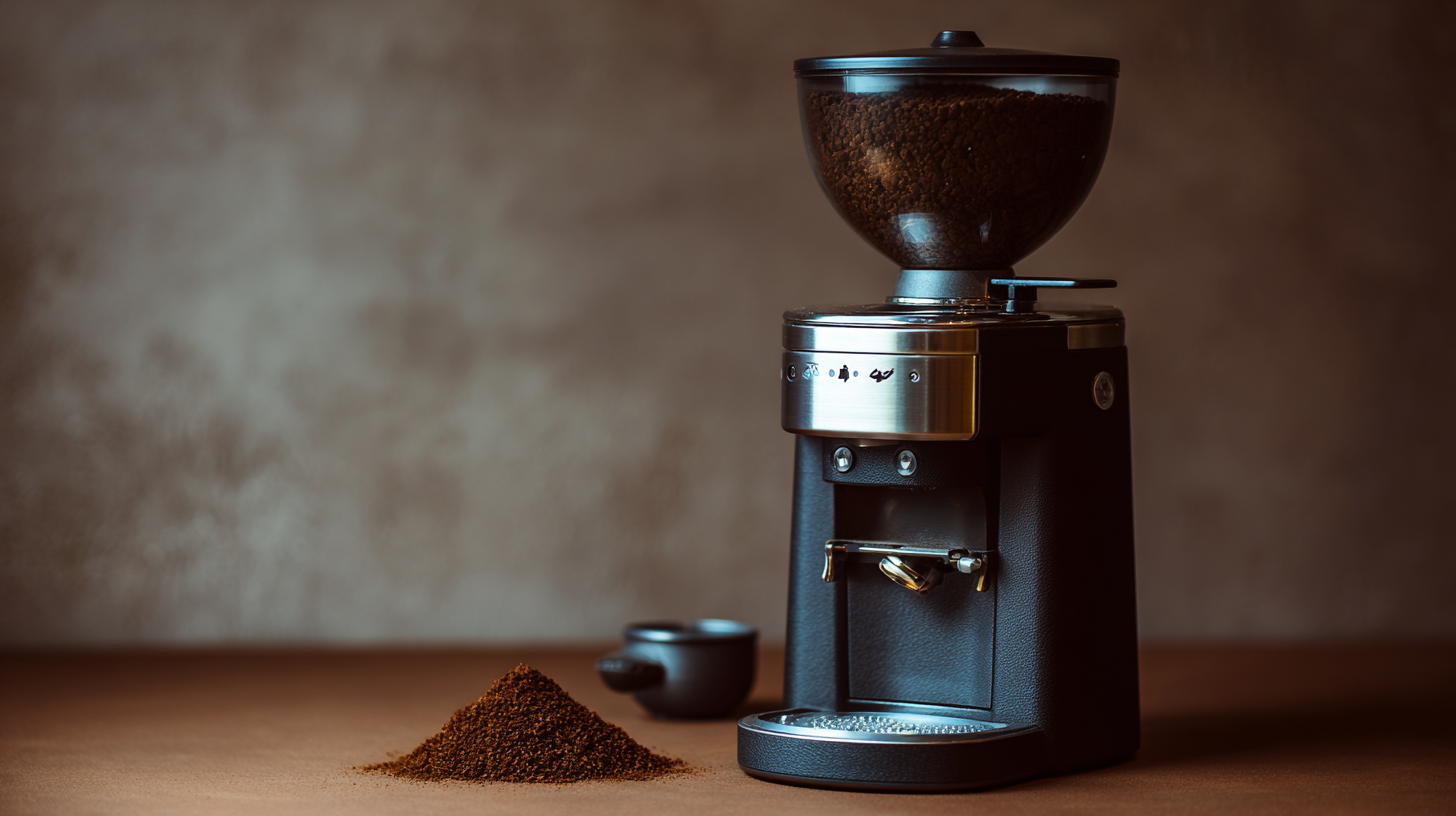Leave Your Message
-
Phone
-
E-mail
-
Whatsapp
-
Whatsapp


As the global coffee market continues to expand, the demand for high-quality coffee equipment, particularly the Flat Burr Grinder, has surged. According to recent industry reports, the global coffee grinder market is projected to reach USD 3.20 billion by 2025, growing at a CAGR of 6.5% from 2020 to 2025. This growth is driven by the increasing consumer preference for specialty coffee and the rising number of coffee shops around the world. However, with this surge in demand comes the necessity for navigating complex import and export certifications that can impact business operations. Understanding the regulatory landscape not only ensures compliance but also enhances market accessibility for manufacturers and retailers of Flat Burr Grinders.

This blog aims to provide insights into the certification process, highlighting key industry applications and best practices for successfully entering the global market.
The global market for flat burr grinders has been experiencing a significant uptick, largely driven by the growing coffee culture and the rising demand for specialty coffee. According to a report by IBISWorld, the coffee grinder industry is expected to grow at an annual rate of 3.5% over the next five years, with flat burr grinders gaining a considerable share due to their ability to deliver consistent grind size and superior flavor profile. Regions such as North America and Europe lead the market, complemented by a surge in consumer interest in high-quality coffee at home.
Emerging markets in Asia, particularly China and India, are also becoming key players in the flat burr grinder segment. A study by Mordor Intelligence highlights that the Asia-Pacific region is projected to see a compound annual growth rate (CAGR) of 7.2% through 2026, driven by increasing disposable incomes and a growing appreciation for gourmet coffee. Consumers in these regions are shifting towards premium appliances, creating a steady demand that manufacturers need to address with appropriate import and export certifications to ensure compliance and market access.
When considering the import of flat burr grinders, understanding the regulatory frameworks of major economies is crucial for compliance and market access. In the European Union, for instance, the Machinery Directive requires that all coffee grinding machines meet specific safety standards, which are detailed in EN ISO 12100. Reports indicate that around 63% of importers often face delays due to inadequate adherence to these standards, highlighting the importance of thorough documentation and testing.
In the United States, the Food and Drug Administration (FDA) oversees regulations that pertain to food safety, significantly influencing the import process for flat burr grinders. The Compliance Guide for Equipment and Utensils emphasizes the need for materials that are safe for contact with food. According to industry analysts, meeting these regulatory standards can enhance the marketability of grinders by up to 40%, reflecting the increasing consumer demand for safety-compliant kitchen equipment. Therefore, navigating these import regulations not only ensures compliance but also positions companies favorably within the competitive global market.
| Country | Import Certification Required | Regulatory Authority | Customs Duty (%) | Standard Compliance |
|---|---|---|---|---|
| United States | Yes (UL Certification) | CPSC | 2.5% | ANSI Standards |
| European Union | Yes (CE Marking) | European Commission | 3% | EN Standards |
| Canada | Yes (CSA Certification) | Health Canada | 0% | Canadian Standards |
| Australia | Yes (RCM Compliance) | ACMA | 5% | AS/NZS Standards |
| Japan | Yes (PSE Mark) | METI | 8% | JIS Standards |
When venturing into the global market with flat burr grinders, understanding export certifications is crucial. Compliance with international standards ensures that your products meet the quality and safety expectations of various countries. Different regions may require specific certifications, such as CE marking in Europe or UL certification in North America. Familiarizing yourself with the regulations pertinent to the markets you wish to enter is essential for smoother transactions and avoiding costly delays.
Moreover, obtaining the right certifications not only builds trust with your international customers but also enhances your brand's reputation in the competitive landscape. Engaging with local regulatory bodies or certification experts can provide valuable insights into the necessary documentation and testing processes. By proactively addressing compliance requirements, businesses can effectively navigate the complexities of exporting flat burr grinders and focus on delivering high-quality products to coffee enthusiasts worldwide.
In the world of specialty coffee, flat burr grinders have made a significant impact across various industries, showcasing their versatility and precision. In coffee shops, for instance, the consistent grind size achieved by flat burr grinders allows baristas to extract the best flavors from coffee beans, leading to a superior beverage experience for customers. A case study from a renowned café chain highlights how switching to flat burr grinders increased their customer satisfaction rates, facilitating quicker service and enhancing the overall flavor profile of their espresso drinks.
Beyond the coffee industry, flat burr grinders are increasingly utilized in culinary settings, particularly in restaurants that prioritize high-quality ingredients. A successful fine dining establishment reported dramatic improvements in the texture and taste of their spice blends after implementing flat burr grinders into their kitchen operations. This case highlights the ability of these grinders to achieve uniformity in grinding spices, which is crucial for capturing and enhancing the intricate flavors that distinguish gourmet dishes. As industries continue to adopt flat burr grinders, their role in enhancing product quality and operational efficiency becomes increasingly evident.

When sourcing flat burr grinders for international distribution, it's crucial to establish strong connections with reliable manufacturers. This involves researching potential suppliers and evaluating their production capabilities, certifications, and compliance with international standards. Always request samples to assess the quality of the grinders before making bulk orders. Additionally, understanding the local market demand and how it translates into sales will guide your purchasing decisions.
Tip: Attend trade shows or industry expos to meet manufacturers firsthand. Engaging directly with suppliers allows you to establish trust and negotiate better terms.
Once you've secured a supplier, focus on the import and export certifications required for your target markets. It's essential to familiarize yourself with regulations that pertain to product safety, quality assurance, and customs processes. Documentation should be meticulously handled to avoid shipment delays and ensure compliance.
Tip: Consider hiring a customs broker to navigate complex regulations and facilitate smoother transactions, ensuring that all necessary certifications are in place for hassle-free import and export operations.

